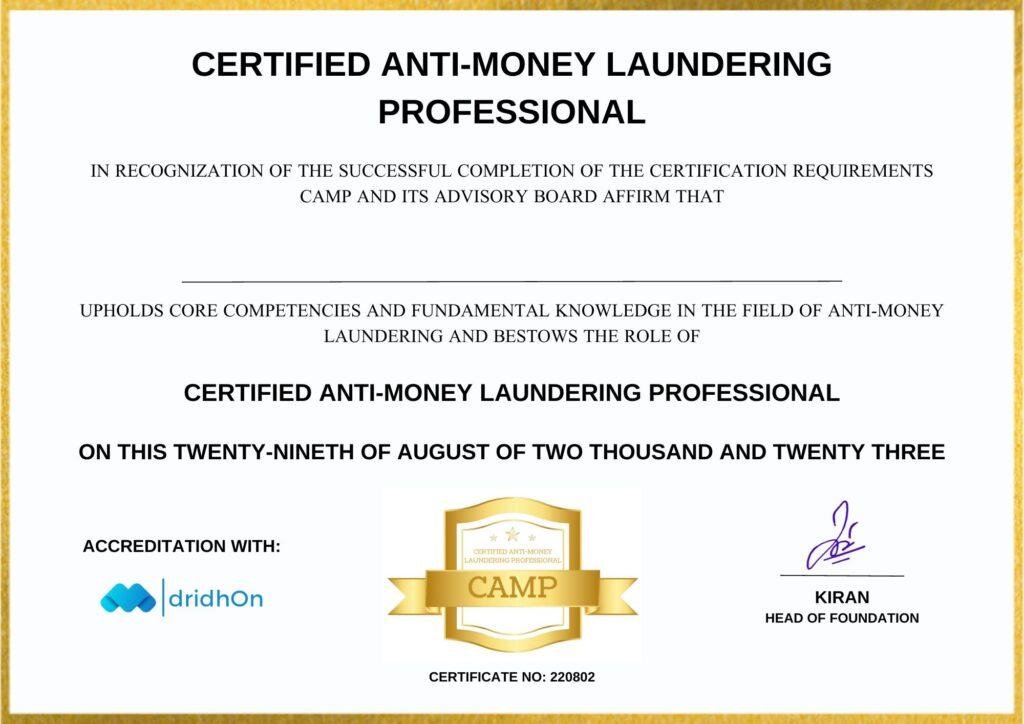Tools used in different Countries for AML KYC Become a Certified Professional Tools used in different countries for aml kyc.…
Real Time Case Scenario of Sanction Screening in Anti Money Laundering
Sanction screening
Real-time sanction screening is a crucial component of Anti-Money Laundering (AML) and counter-terrorism financing (CTF) efforts. It involves checking customer data and transactions against various sanction lists to identify individuals, organizations, or entities involved in illegal activities or subject to financial sanctions. Here's an example scenario illustrating how real-time sanction screening works in an AML context:
• Customer Onboarding: A new customer applies to open an account at a financial institution. The customer provides their personal information, such as name, date of birth, address, and identification documents.
• Sanction Screening: As part of the customer onboarding process, the financial institution conducts real-time sanction screening. They use specialized software or services that connect to global sanction databases maintained by government agencies, such as the Office of Foreign Assets Control (OFAC) in the United States or the United Nations Security Council Consolidated List.
• Match Detection: The sanction screening software compares the customer's provided information against the sanction lists. If there is an exact or partial match between the customer's data and an entry on the sanction list, a potential match is detected.
• Risk Assessment: The financial institution's compliance team reviews the potential match to determine the level of risk. They consider factors such as the severity of the sanctions, the nature of the customer's relationship, and the customer's transaction history.
• Investigation and Resolution: If the potential match is deemed significant, further investigation is conducted. The compliance team verifies the accuracy of the match and gathers additional information to make an informed decision. This may involve contacting the customer directly for clarification or requesting additional documentation.
• Decision Making: Based on the investigation findings, the compliance team makes a decision regarding the customer's status. If the match is confirmed, the financial institution may reject the customer's application, freeze existing accounts, or report the match to the appropriate authorities, depending on legal obligations and internal policies.
• Ongoing Monitoring: Even after customer onboarding, financial institutions continue to monitor customer transactions and screen them against sanction lists in real-time. If a match is detected during ongoing monitoring, a similar investigation and decision-making process takes place.
Real-time sanction screening helps financial institutions identify and prevent potential money laundering and terrorist financing activities. It ensures compliance with international regulations and enables timely reporting of suspicious transactions to relevant authorities.
It's important to note that the specific processes and technologies used for real-time sanction screening may vary among financial institutions. Some institutions develop their in-house solutions, while others rely on specialized AML software provided by third-party vendors. Compliance with local regulations and ongoing staff training are critical to ensure effective sanction screening and AML efforts.
Tools used in Different Countries for AML KYC
How AML KYC work & what are the Different Process
How AML KYC Work & What are the Different Process Become a Certified Professional How AML KYC Work & What…
What is The Latest in Automation Testing
What is The Latest in Automation Testing Become a Certified Professional What is The Latest in Automation Testing What is…




